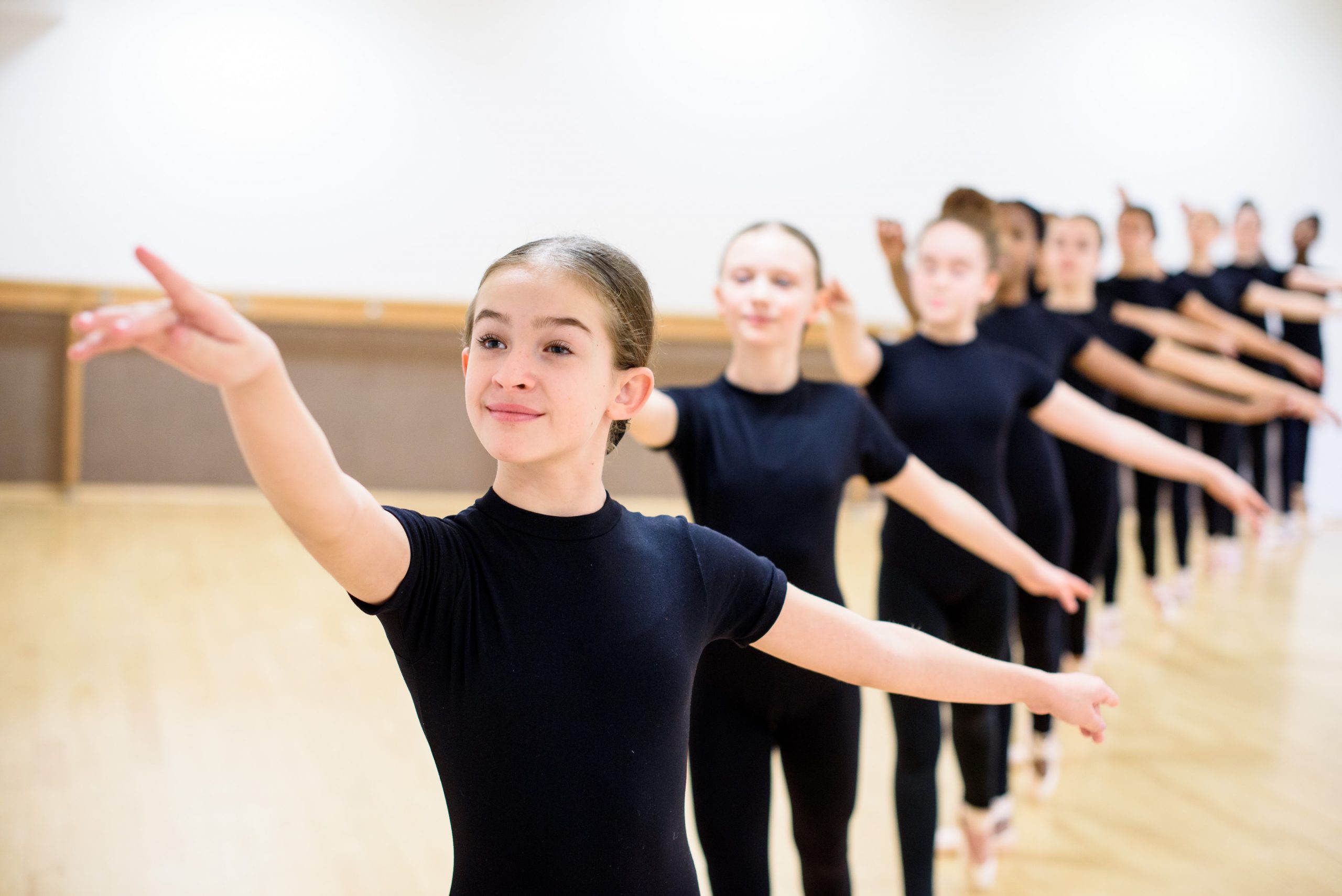Forty years since its inception, Susan Elkin pays a visit to the Sylvia Young Theatre School in London to find out how this successful establishment is evolving.
It’s always a pleasure to visit Sylvia Young Theatre School. Its astonishingly attractive building is a light, bright, lofty former church just off Edgware Road. Complete with stained glass, pillars and grandiloquent staircases, it has been converted to include two vocational floors (studios, rehearsal rooms, recording studio), two academic floors and a large canteen with two courtyard gardens. On the top is a penthouse home for the eponymous Sylvia Young and her husband, Norman. At 83, she still comes downstairs to work every day and is every inch a hands-on principal.
Founded in Drury Lane by Sylvia Young in 1981, today the school provides a rounded full-time education for around 220 (capacity for 250) 10–16-year-olds. Frances Chave is the headteacher and she leads a strong team of teachers of academic subjects.
“Yes of course we’re a performing arts school, but we also achieve high academic standards,” Managing Director, Alison Ruffelle tells me. “Almost all of our young people achieve high GCSE grades and we were delighted last year that one of our former students went to Oxford and another to Cambridge. Their subjects were law and modern languages!” Alison and I agree that they will be equipped with lots of transferable skills which perhaps those from other schools will not have.
So how is the balance organised? Sylvia Young pupils study the entire academic curriculum in three days per week – Monday, Tuesday and Wednesday with homework. That leaves Thursday and Friday to focus single-mindedly on vocational training such as drama, dance and singing. And that, of course, is why academic standards are high – even without academic selection. Every student is strongly motivated to achieve academically because it means that they get the vocational package they passionately want.
There is a well-established children’s theatre agency operating as a separate business within SYTS. “Every child is signed to it and they are not permitted to work with other agencies” explains Alison. “It means that quite a lot of our students get TV, film and stage work which for some, helps to offset school fees.”
In the past the school has awarded scholarships but has stopped the programme. “We are now looking at the possibility of (stringently) means-tested bursaries instead” says Alison. “It makes no sense for us to fund children whose parents can afford to send them to us anyway. We want to reach the ones who’ve got the talent and potential but who really wouldn’t be able to come to us without financial support.”
SYTS students come from all over the southeast and some travel as much as 90 minutes each way every day. “A lot of them meet up with travel buddies at the hubs, so that they don’t make the whole journey alone” says Alison, explaining that there are no longer facilities for boarding with approved host families. “That system – all the support, vetting and monitoring – was costing the school too much for a small and dwindling number of students.”
Of course, the 2020 and 2021 school closures made problems – as they did in every other school. “We delivered the academic programme pretty successfully by sticking to the usual timetable, but doing it online with just slightly longer breaks” says Alison. “The vocational offering was much harder because it really does need to be in the room to work as well as it should.” Moreover, once the children were back in school it was an uphill struggle to get some of them to resettle. “All those weeks away from day-to-day school discipline is not good for children” says Alison, who has an 11-year-old daughter of her own and found home schooling very difficult when she was also working from home herself.
Other strands of SYTS work include part-time training for children – weekends and summer schools – and classes for adults. So one way or another, large numbers of people get to experience and use the glorious building and its fine facilities – and to benefit from the skills of the many fine teachers who teach vocational subjects at SYTS.
“The pandemic made huge problems for all businesses and a school like ours is no different, not least because we lost a lot of the part-time training income which normally helps to keep the rest of the school going” Alison says. “But we found ways of getting through it – although I doubt we could do it again. Let’s hope we don’t have to.”
Sylvia Young Theatre School
1 Nutsford Place
London WIH 5YZ
020 7258 2320
Auditions are held throughout the year.



